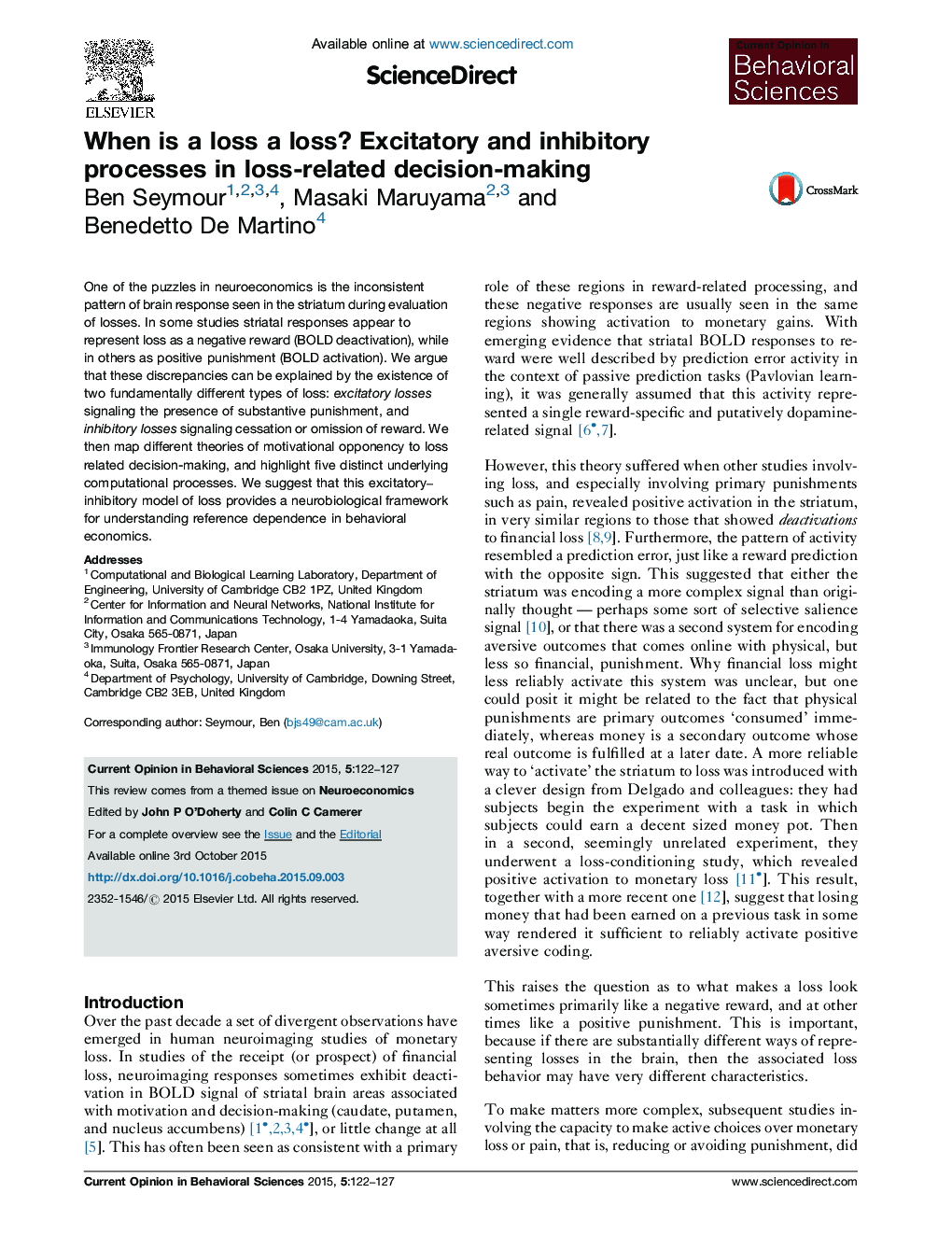| کد مقاله | کد نشریه | سال انتشار | مقاله انگلیسی | نسخه تمام متن |
|---|---|---|---|---|
| 6260861 | 1613085 | 2015 | 6 صفحه PDF | دانلود رایگان |
- Reward and loss related decisions are supported by fundamentally different processes.
- Losses can be subdivided into excitatory and inhibitory losses.
- Striatal representation of losses determined by subtle experimental factors.
- Loss avoidance involves the interplay of at least five distinct processes.
- Excitatory and inhibitory losses are related to economic concept of reference point.
One of the puzzles in neuroeconomics is the inconsistent pattern of brain response seen in the striatum during evaluation of losses. In some studies striatal responses appear to represent loss as a negative reward (BOLD deactivation), while in others as positive punishment (BOLD activation). We argue that these discrepancies can be explained by the existence of two fundamentally different types of loss: excitatory losses signaling the presence of substantive punishment, and inhibitory losses signaling cessation or omission of reward. We then map different theories of motivational opponency to loss related decision-making, and highlight five distinct underlying computational processes. We suggest that this excitatory-inhibitory model of loss provides a neurobiological framework for understanding reference dependence in behavioral economics.
Journal: Current Opinion in Behavioral Sciences - Volume 5, October 2015, Pages 122-127
